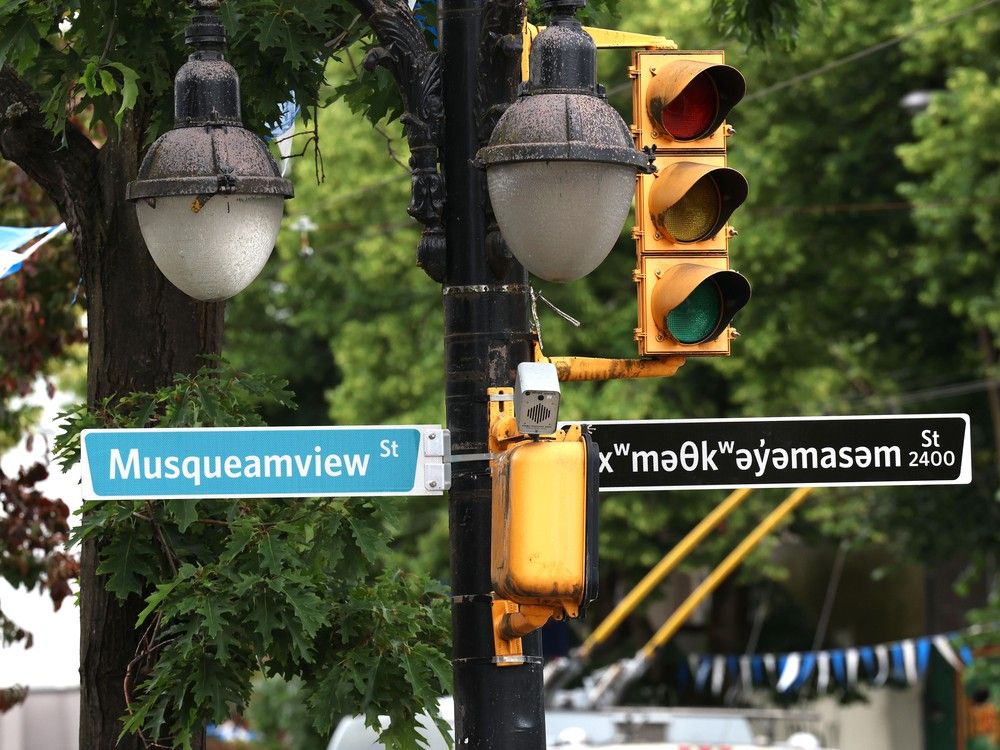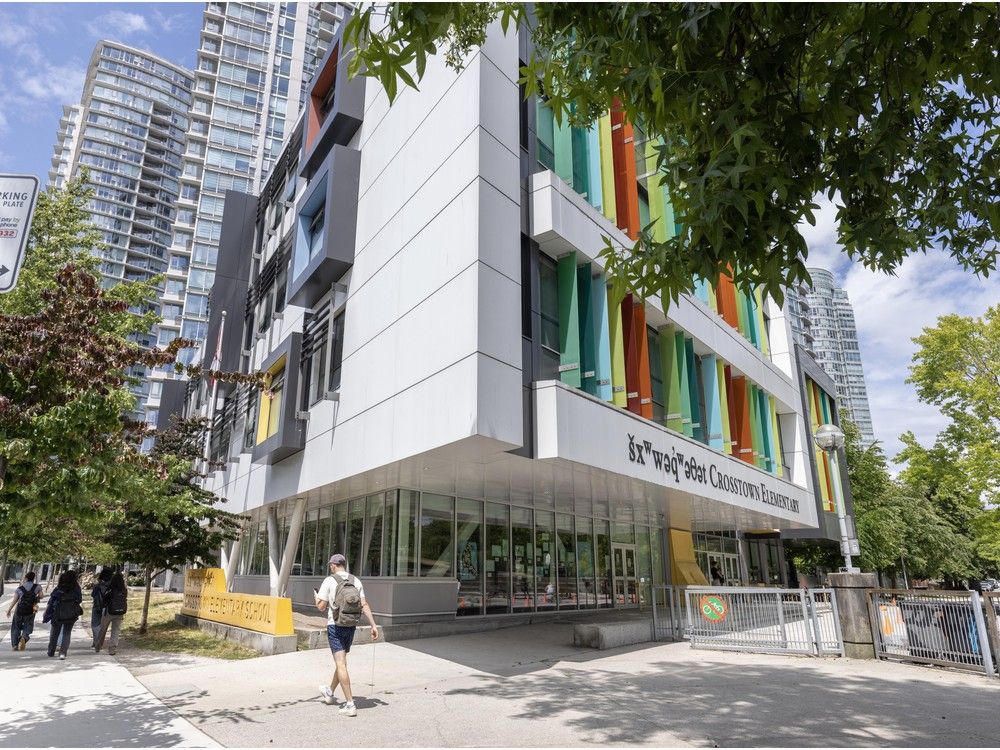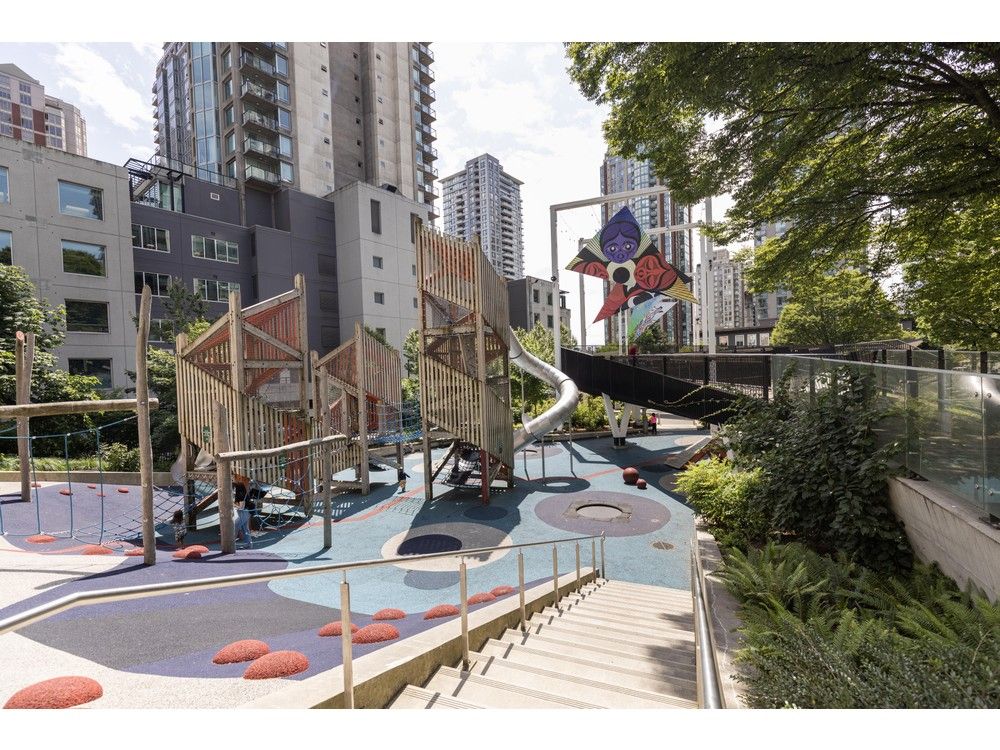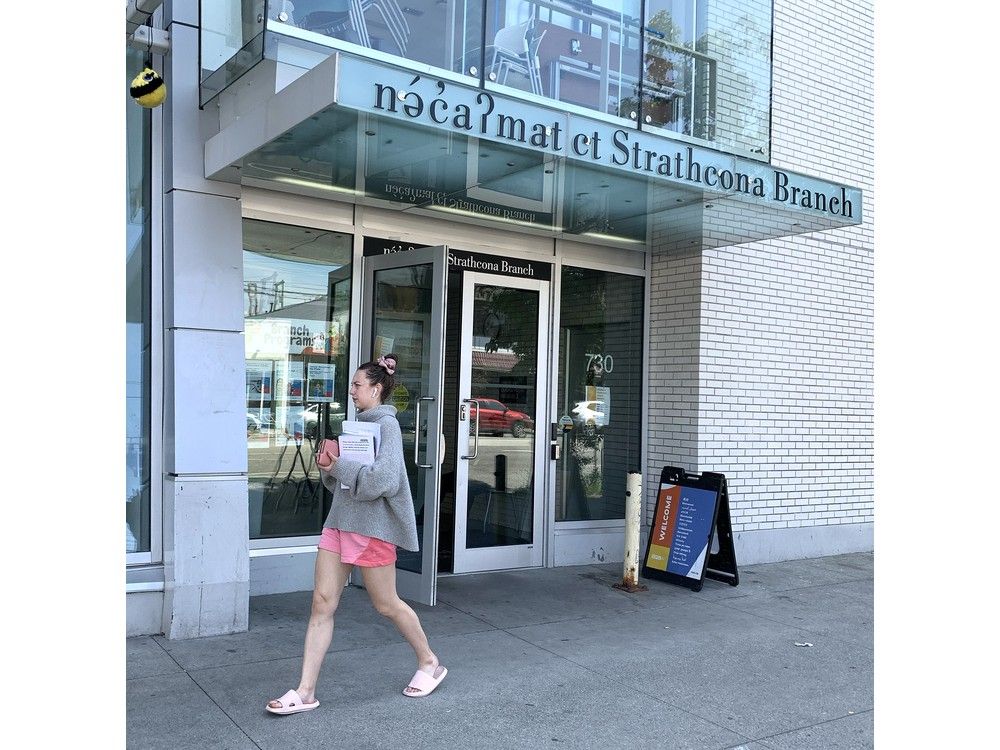
Not many people speak hən̓q̓əmin̓əm̓ (pronounced hun’-q’um-ee’-num’), the language of the Musqueam Nation , fluently these days.
Colonial policies almost extinguished the language.
“I had been conditioned to think that our language and our culture are primitive and that we should cast them aside,” said Victor Guerin, a Musqueam linguist who grew up in the era of residential schools.

Various efforts are underway to try to preserve the language, including incorporating it into public spaces.
On June 20, Vancouver city officials and members of the Musqueam Indian Band gathered in Kitsilano for the official renaming of Trutch Street as Šxʷməθkʷəy̓əmasəm (sh-xw-MUTH-qwee-um-awe-sum) Street, also known as Musqueamview in English. It was the first street sign in the city to undergo such a change.
It joined a number of plazas, buildings and other locations in Vancouver that have received official hən̓q̓əmin̓əm̓ names.
Guerin, who has spent decades learning, teaching and trying to revitalize hən̓q̓əmin̓əm̓, said renaming the street was a small but important step in the process of reconciliation.
“This is very important for our people to raise their own self-esteem back to where it was in the 10,000 years previous to this,” he said.

A recent UBC study found that community-led Indigenous language programs were linked to better mental-health outcomes in those communities. The study showed that learning or teaching Indigenous languages helped individuals recover from trauma, including the long-lasting effects of colonization and residential schools.
It found communities where more people spoke their Indigenous language reported lower rates of youth suicide and depression. Language was also found to support identity, self-esteem and cultural pride — key factors in mental and emotional well-being.
“Language was one of many parts of our Indigenous identities that histories of genocide attempted to eradicate,” Karleen Delaurier-Lyle, co-author of the study and a librarian at UBC’s X̱wi7x̱wa (xwee-xwa) Library, said in a statement. “Any support in rectifying that past for our ability to heal from that is important.”
“I think it contributes toward helping our people raise their regard for the importance of our language,” Guerin said of the recent street renaming in Vancouver.
“The visibility of our presence on the land, the place names and street names, are things that reflect our history on the land since time immemorial,” he said.

The dense consonant clusters and unusual letters in hən̓q̓əmin̓əm̓ can pose a challenge when it comes to pronunciations. Hən̓q̓əmin̓əm̓ has 36 consonants, 22 of which are not found in English. Some, like t̕ᶿ, only appear in a handful of languages around the world.
Postmedia worked with Guerin to put together a short pronunciation guide for the hən̓q̓əmin̓əm̓ names of some well-known Vancouver locations and landmarks.
What does the little comma above or next to a letter mean?
It indicates the letter is glottalized, that is it has an audible popping sound upon its release.
What does that little “w” (ʷ) next to a letter mean?
The little ʷ next to a letter means that the particular sound is made with the lips rounded. The hən̓q̓əmin̓əm̓ word kʷe:l sounds very similar to the English word quell, for example.
Where can I learn more?
UBC has a website where you can hear how to pronounce the full alphabet .
For those interested in learning the hən̓q̓əmin̓əm̓ language, courses are available through UBC’s First Nations and endangered languages program .